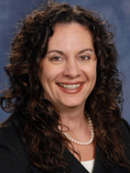By Ken Camp
Tiffany Wright believes the priesthood of believers involves equipping the laity to bear one another’s burdens and give Christ-like care to hurting people.
That’s why Wright leads the Stephen Ministry at Wilshire Baptist Church in Dallas, a program that provides one-to-one ongoing lay Christian care. Stephen Ministry takes its name from one of the seven laymen the early church selected to provide caring ministry to people in need, as recorded in the New Testament book of Acts.
“When a person has a problem, the Stephen Minister is not there to fix it, but rather to be present, listen, pray and love. It’s a unique role,” said Wright, minister for care ministries at Wilshire.
 The ideal Stephen Minister is “a good listener, compassionate, nonjudgmental and a non-anxious presence. They are comfortable in their own skin and full of faith.”
The ideal Stephen Minister is “a good listener, compassionate, nonjudgmental and a non-anxious presence. They are comfortable in their own skin and full of faith.”
Stephen Ministers receive 50 hours of training and continuing supervision, but they do not try to fill the role of professional counselors, therapists, pastors or physicians. Instead, they pledge to be a Christian friend who will listen attentively, maintain confidentiality and walk alongside a hurting person through a difficult time.
“The pastor can show up when something initially happens, and so can the deacons. But they can’t be there week after week. There are just too many people. Stephen Ministers provide one-on-one care, once a week for as long as it’s needed — as long as the care receivers want someone to walk alongside them,” said Debbie Bartles, Stephen Ministry coordinator at First Baptist Church in Georgetown, Texas.
Kenneth Haugk recognized the need nearly 40 years ago. When Haugk, an ordained minister and clinical psychologist, served as pastor of a Lutheran church in St. Louis, he made three discoveries.
 “I couldn’t do it all by myself in terms of caregiving; people who were hurting needed good-quality care; and lay people wanted to do meaningful ministry,” he said.
“I couldn’t do it all by myself in terms of caregiving; people who were hurting needed good-quality care; and lay people wanted to do meaningful ministry,” he said.
With the help of a couple of seminary field workers, he developed and piloted a program to train laypeople in one-to-one caregiving. The experiment proved successful, and other congregations wanted to develop a similar ministry.
Haugk incorporated Stephen Ministries as a nonprofit organization. Since 1975, Stephen Ministries has spread to more than 11,000 congregations from 160 Christian denominations in 26 countries. More than 600,000 laypeople have received Stephen Minister training, and at least 1.6 million people have received care from them.
Taking ‘priesthood of believers’ seriously
“We take the theology of the priesthood of all believers seriously. There is a lot of talk about it, but it is not always done,” Haugk said.
Most congregations have plenty of laypeople who possess the potential to serve as effective Stephen Ministers, he noted.
“The spiritual gifts of mercy and encouragement tend to be given out more liberally by the Holy Spirit than gifts of visionary leadership or administration,” Haugk said. “There are many people in churches who could do a good job as Stephen Ministers — if trained.”
Other people helped Bartles realize she possessed the spiritual gifts that equipped her for caregiving ministry, she said.
“People have always come to me with their problems. God has been preparing me for this ministry my whole life,” she said.
Stephen Ministries succeeds in congregations where pastors support the program and see it as a way to multiply their effectiveness, recognizing “there is more care to be done than any one person can do,” Haugk said.
Community-based mental health providers likewise praise the role of paraprofessional caregivers, and they view Stephen Ministers as good examples, he added.
“Mental health professionals really like Stephen Ministry because they know it does good, sound psychological work,” Haugk said.
Stephen Ministers provide a care receiver “unconditional positive regard,” he said.
Listening
A big part of that involves listening to the stories of hurting people in a context where they feel safe to be open and honest, Bartles said.
“Care receivers understand how much good it does them to talk and to know there is somebody who really will listen — that they will be heard and not judged,” she said. “We assure them we will not judge them. They can say whatever they want to say. They won’t be judged, and it will be treated confidentially.”
At First Baptist Church in Georgetown, most care receivers are members who recognize the Stephen Ministry is there for them when they need it, she noted.
“It helps the members of our congregation feel loved and cared for, knowing that this ministry is available,” she said.
At Wilshire Baptist Church, about one-third of the care receivers are not members of the congregation. Rather, they usually are referred by Wilshire members who are their neighbors, family or coworkers, Wright said.
“Some are not involved in any church at all,” she noted.
Gift to the community
Wilshire views Stephen Ministry as a gift it offers to its community, Wright said. But the congregation benefits from the ministry — even beyond the immediate care Stephen Ministers provide. Members who have received Stephen Ministry training often make the best committee chairs and leaders in church life because of the skills they gained, she explained.
“They have a better understanding of how to listen,” she said. “They know everybody has a story, and everybody is going through something.”
